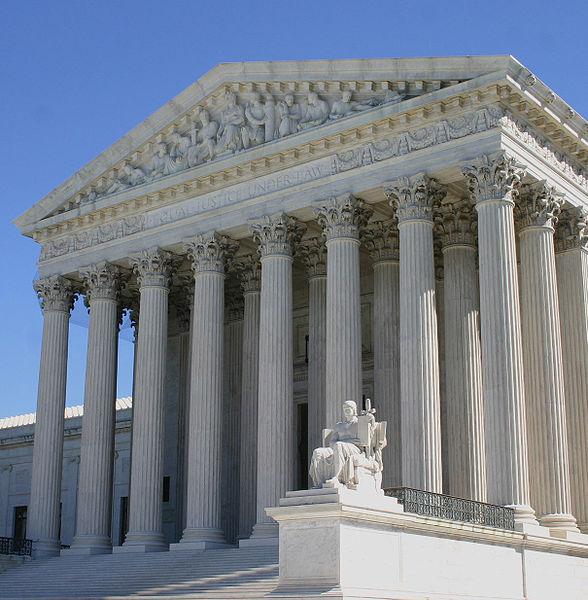U.S. Supreme Court strikes down Arizona voter citizenship provision
As the U.S. Supreme Court considers the third and final part of President Barack Obama’s healthcare reform act, some legal scholars are warning a decision to overturn here could have dire consequences for countless other federal programs. (Photo by d
The Supreme Court says states can’t require would-be voters prove they are U.S. citizens before being allowed to register to vote.
The justices, in a 7-2 decision, threw out Arizona’s voter-approved requirement that prospective voters document their U.S. citizenship in order to use a registration form produced under the federal “Motor Voter” voter registration law. The 9th U.S. Circuit Court of Appeals said that the 1993 National Voter Registration Act, which doesn’t require such documentation, trumps Arizona’s Proposition 200 — passed in 2004.
Federal says prospective voters must swear they are citizens before registering,
Arizona officials say their law is needed to stop non-Americans from voting in elections, while opponents see it as an attack on minorities, immigrants and the elderly. Three other states, Kansas, Oklahoma and Michigan, have similar laws, though the status of each individual state’s law is not yet clear.
Emily Bazelon, senior editor for Slate magazine and a senior research fellow at Yale Law School, said there’s been a number of voter ID laws passed by the states in recent years — but most of them have been struck down by courts at varying levels.
“It’s interesting to see this particular kind of effort to tighten up voting has really not passed through the courts,” Bazelon said.
The 7-2 ruling surprised many court-watchers, including Kansas Secretary of State Kris Kobach, the author of many of the voter ID bills, who expected at the very least a closer ruling from what’s been a fairly conservative court.
Bazelon, though, said that while the ruling was joined by an overwhelming majority, it was narrowly crafted by Justice Antonin Scalia, one of the court’s most conservative members. Scalia is also an expert on the text of the U.S. Constitution, a skill he relied upon in the ruling.
“He says, ‘look, the Constitution gives states the power to say the time, place and manner of elections, but then it says that Congress can alter and make its own rules.’ And so, basically, Scalia’s ruling of that dual way in which the Constitution apportions responsibility to Congress and to the states is to say, ‘you know what? Congress wins,'” Bazelon said.
That specific Constitutional clause is what drove the decision, she added.
